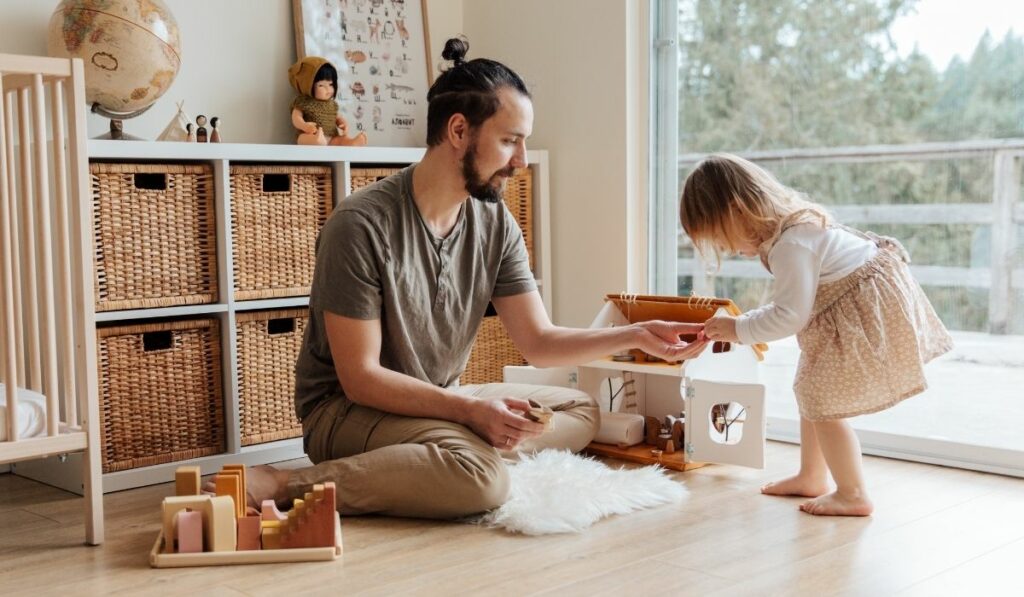Parents bear a great deal of responsibility for raising their children in the ideal attainable manner. Good parenting occurs when a parent creates a steady, loving family environment, serves as a positive influence, and participates actively in their kid’s development. However, parenting skills don’t come as with a child; it is something that we have to develop over time.
It is not easy to figure out what type of parenting style suits you and your children, which is normal. Children don’t come with instruction manuals, and even if they did, you’d find something new about them every day. The notion of good parenting may differ from one family to another. The most basic and standard way to define good parenting is “Taking accountability for the overall development of children, delivering support and encouragement and spiritual guidance, and guiding them through open conversation and mutual regard.” Responsible parents foster positive character, set boundaries, and positively impact their children’s development.
Parenting skills will come to you through regular practice and patience. Here are 8 essential parenting skills to help you include good parenting in your family:
1) Spend time with your children
Make time frequently to take part in quality play with your children. This helps to strengthen your bond with your child, which leads to them being happier to comply. Be available to them. Take time out, no matter how preoccupied you and your children are, to interact. Increase mutual understanding and cooperation.
2) Find ways to express your unconditional love for them
The potential to exhibit our children’s unconditional love and care is perhaps the most crucial skill.
The foundation of your children’s well-being and happiness is the affection and comfort that you provide them with. The more you make your children feel loved, the more obedient they will become and learn from you. Before you teach your child the realities of the world, show them, unconditional love.
Loving our children unconditionally implies that we respect them and show them that they are loved and appreciated, and accept them the way they are.
3) Teach them to express their emotions
Several times, children misbehave because they have no idea of how to convey their intense feelings. Parents should assist them in opening up about such feelings, understand their situations and help them get rid of the weight on their chest.
4) Improve your active listening skills
Active listening helps parents to get to know their children on a whole other level. There are so many things about our children that go unnoticed by us throughout the day. Practicing active listening will help us in learning vital information about the feelings and emotions of our children.
Maintaining eye contact, putting ourselves in their shoes, and letting them speak without interruptions are some of the best ways to amp up our listening skills. You can ask open-ended questions to get them talking and then paraphrase their words to show that you frequently understand and care for them.
5) Don’t raise your hand
When children get out of control, it’s natural for parents to lose their cool and act violently to punish them. It may relieve parents’ rage for a short time; it not only leaves your child with bad memories for a lifetime but also encourages them to turn to violence when they are frustrated.
Practice positive discipline instead of resorting to fear methods. Positive discipline solidifies the bond between parents and children. It also helps to acknowledge a child’s needs and to ensure that those requirements are fulfilled.
6) Teach them to set required boundaries
Teaching kids to set healthy boundaries and say ‘no’ when needed is one of the fundamental aspects of good parenting. Children flourish when their boundaries are consistent and respected by everyone, including their parents.
Consistency shows children that they should believe you and makes them Our job as parents are to teach all of these things to our kids for a future world full of compassion and empathy.
7) Become someone they will look up to
Serving as a good example and influence will help you properly discipline your child. To teach your child things like learning proper morals, valuing time and money, being respectful, capable, considerate, sincere, and calm, acting morally, being sensible, and never disappointing you, you must set a good example for them by yourself.
Kids are a reflection of what they have been taught by their parents and the environment around them. We will have to transform ourselves and make positive changes in our environment if we want our children to be influenced positively.
8) Support your kids’ passions
Another essential parenting skill that all parents must have is providing appropriate support to the children. This implies that you are serving as a moral fiber, a core. You provide assistance and support so that your child can grow and prosper, pretty aware that they can rely on you. You can provide support in both financial and psychological ways. It entails always saying, empowering things, and being available for your children.
Conclusion
Keep in mind that it is normal to learn new things about parenting along the way. Not every parent is perfect at parenting from the beginning. Keep in mind that there will always be something new coming up about your kids to help you understand them better and ace parenting. Discipline must be used to help your child become a good human rather than making it a punishment for them. You should use every opportunity as a moment to teach your kids and also learn from them.





